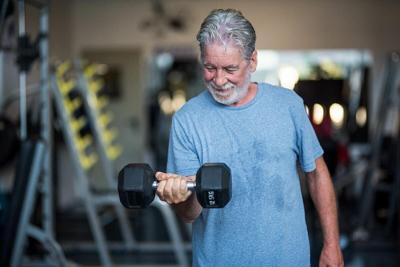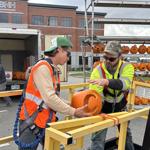SATURDAY, Oct. 25, 2025 (HealthDay News) — People with chronic pain who stay active may have one key advantage: Resilience.
A new study from the University of Portsmouth in the U.K. found that one’s ability to cope with pain, also known as pain resilience, plays a bigger role in maintaining physical activity than the amount of pain they experience.
"What we found is that it's not how much pain you're in that determines whether you stay physically active — it's how you think about and respond to that pain," lead author Nils Niederstrasser, a lecturer in the university’s school of psychology, sport and health sciences, said in a news release.
The findings were published Oct. 22 in the journal PLOS One.
Researchers analyzed data from 172 adults with chronic pain to better understand what factors influence activity levels.
They looked at pain intensity, the number of painful areas, pain duration, frailty and fear of movement, and found that resilience was the only consistent predictor of higher activity levels.
Even after accounting for how severe the pain was, those with higher resilience were more likely to keep moving. In contrast, fear of movement (known as kinesiophobia) did not significantly impact physical activity.
The study suggests that building psychological resilience could be just as important as pain management for improving long-term health.
“People with greater resilience can maintain a positive attitude and push through discomfort, and this psychological factor is a better predictor of physical activity than pain intensity itself," Niederstrasser said.
Traditionally, chronic pain treatments have focused on reducing symptoms or addressing fear of movement. But this research highlights the potential benefits of helping people develop coping skills that build resilience.
“This is a significant shift from historically focusing on negative factors like fear of movement, to understanding the power of positive psychological resilience in managing chronic pain," Niederstrasser explained.
The research builds on previous work showing that regular exercise, maintaining a healthy weight and reducing social stress can all help prevent pain in the first place.
More information
Frontiers has more on grit, resilience and physical activity.
SOURCE: University of Portsmouth, news release, Oct. 23, 2025
What This Means For You
If you live with chronic pain, how you think about and cope with discomfort may matter more than the pain itself.





















(0) comments
Welcome to the discussion.
Log In
Keep it Clean. Please avoid obscene, vulgar, lewd, racist or sexually-oriented language.
PLEASE TURN OFF YOUR CAPS LOCK.
Don't Threaten. Threats of harming another person will not be tolerated.
Be Truthful. Don't knowingly lie about anyone or anything.
Be Nice. No racism, sexism or any sort of -ism that is degrading to another person.
Be Proactive. Use the 'Report' link on each comment to let us know of abusive posts.
Share with Us. We'd love to hear eyewitness accounts, the history behind an article.